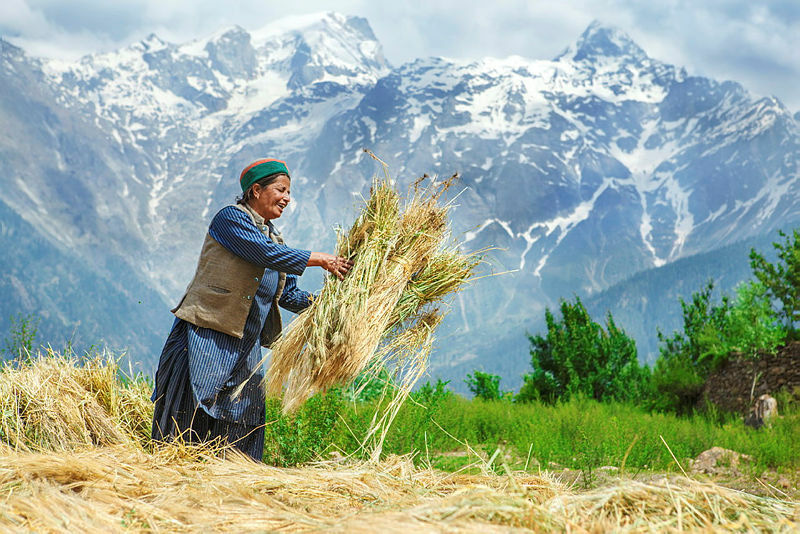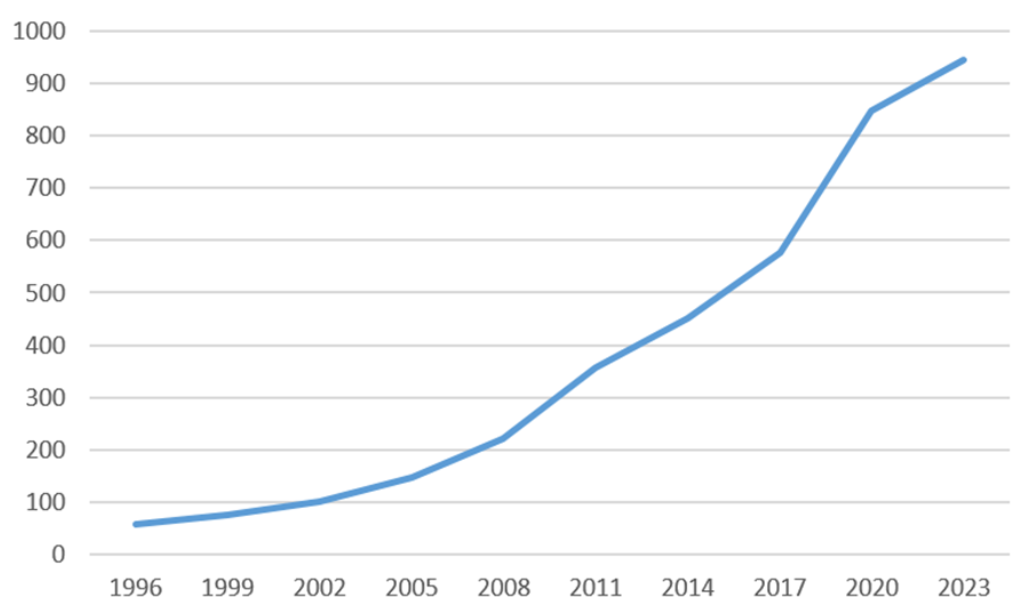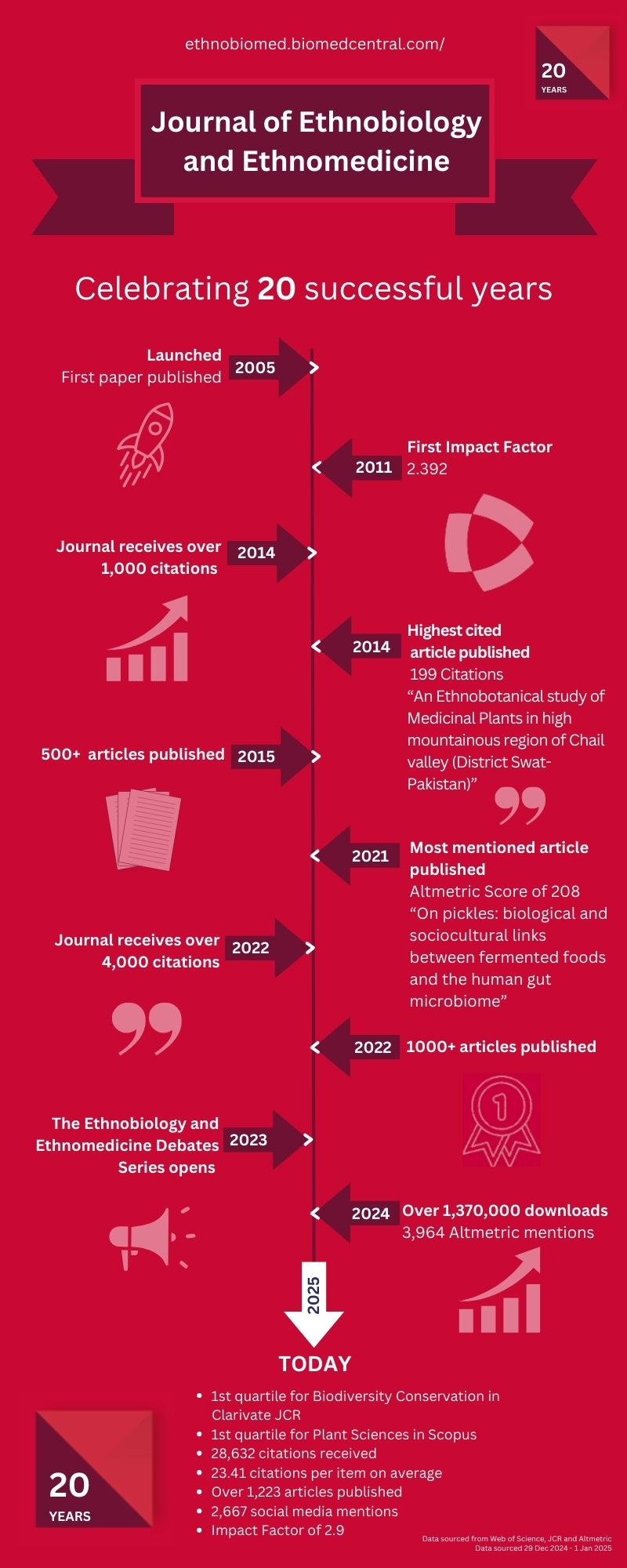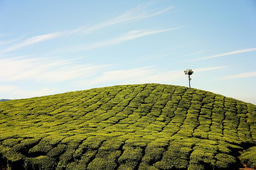20 years of Ethnobiology and Ethnomedicine
Published in Social Sciences, Ecology & Evolution, and Plant Science

For 20 years, the Journal of Ethnobiology and Ethnomedicine (JEET) has been advancing the field of ethnobiological sciences through groundbreaking articles that shed light on the inextricable links between human societies and nature, food, and health. While pioneering a diverse, innovative forum for global research on local and indigenous ecological knowledge, the JEET has amplified the role of ethnobiology in advancing research that supports global themes and trends, such as ecological transition, sustainability, urban transformations, and citizen science.
To celebrate all of this, the JEET Editors have launched an anniversary article collection and created an infographic, which is available here and also below. While the selection of research and key facts in the collection and infographic is only a limited sample of the many JEET highlights, these new assets aim to celebrate and thank the outstanding community of scientists and experts who have been building this journal tirelessly over the past 20 years, and to demonstrate the lasting impact of their work on developments in the field.
How an emerging field ‘at the fringe’ 20 years ago is influencing science and society today
Ethnobiology, Ethnomedicine and Ethnoecology used to be niche research fields 20+ years ago. Back in 2005, BMC believed in the pioneering and innovative project aimed at filling a gap in the field. Fast forward 20 years, and this research field is now influencing profoundly several arenas in research, society, and policy. Indigenous/Traditional Knowledge (IK/TK) is nowadays a pillar of the:
- Convention on Biological Diversity (CBD)
- UN Declaration on the Rights of Indigenous Peoples (UNDRIP)
- World Intellectual Property Organization (WIPO)
- International Labour Organization (ILO)
- UNESCO Intangible Heritage Convention
Furthermore, the European Research Council has funded 6 large research projects around Community-centred management of natural resources (ethnoecology), over the past few years.
Other ways ethno-bio-medical sciences influence global science and society include:
- Indigenous/Traditional Knowledge (IK/TK) informs small-scale entrepreneurial initiatives focusing on the sustainability of food chains and local handicrafts
- Citizen science frameworks and projects are largely based on frameworks developed in ethnobiology and ethnomedicine
- Strategies devoted to integrating traditional medicine into complementary and alternative medicine.

Journal key facts
92 Editorial Board Members, one third from the Global South
- 1st quartile for Biodiversity Conservation in Clarivate Journal Citation Reports
- 1st quartile for Plant Sciences in Scopus
- 108 articles published in 2024
- Submission to acceptance (median) in 2023: 60 days
- Downloads 2024: 1,370,000+
Stay tuned for more exciting blog posts published throughout 2025 on the Springer Nature Communities website, celebrating this great milestone for the journal.

Follow the Topic
-
Journal of Ethnobiology and Ethnomedicine

This journal publishes original research focusing on cultural perceptions of nature and of human and animal health. It invites research articles, reviews and commentaries concerning the investigations of the inextricable links between human societies and nature, food, and health.
Related Collections
With Collections, you can get published faster and increase your visibility.
Ethnobiology of the islands
This Collection examines the socio-ecological systems of "islands" and coastal areas worldwide, focusing on the relationship between humans and biota and even non-biotic components and the implications of these interactions over time and space. Cross-cultural analysis, indigenous perspectives, and the complex dynamics between the local knowledge of these "isles" (especially the most peripheral and marginalized ones) and the contiguous mainland are particularly welcome. Issues related to the effects of unsustainable tourism on local knowledge systems are also very appropriate.
The projection of the contributions should aim to foster the community-centered sustainable management of marine and coastal resources and envision new paths in environmental education and political ecology.
This Collection supports and amplifies research related to SDG 14, Life Below Water and SDG 15, Life on Land.
All submissions in this collection undergo the journal’s standard peer review process. Similarly, all manuscripts authored by a Guest Editor(s) will be handled by the Editor-in-Chief. As an open access publication, this journal levies an article processing fee (details here). We recognize that many key stakeholders may not have access to such resources and are committed to supporting participation in this issue wherever resources are a barrier. For more information about what support may be available, please visit OA funding and support, or email OAfundingpolicy@springernature.com or the Editor-in-Chief.
Publishing Model: Open Access
Deadline: Jul 03, 2026
Small-scale farming and ethnobiology – Bridging local knowledge, biodiversity, and cultural landscapes
The importance of deepening our understanding of small-scale farming and its intersections with ethnobiology and ethnoecology cannot be overstated. These fields illuminate not only traditional agricultural practices that have sustained communities for generations, but also contemporary locally adapted sustainable practices. Together, they underscore the vital role of local knowledge in preserving biodiversity and shaping cultural landscapes.
Recent research has highlighted the intricate relationships between local communities and their territories and ecosystems, showing how both traditional and locally adapted innovative farming methods can enhance biodiversity and promote ecological balance. These insights are essential for informing sustainable land management and ecosystem resilience.
Looking ahead, continued exploration in this area holds the potential to yield transformative insights. Integrating traditional knowledge with organic and agroecological practices—which may be ancient, innovative, or retro-innovative—can lead to more sustainable and resilient food and agriculture systems. This research is not only key to preserving cultural heritage but also to addressing urgent global challenges related to food security and environmental sustainability.
Topics of interest include, but are not limited to:
Local Knowledge & Sustainability
• Local Knowledge Systems in Agriculture
• Traditional Agricultural Practices and Sustainability
• Indigenous Knowledge and Climate Resilience
Biodiversity & Conservation
• Biodiversity Conservation in Small-Scale Farming
• Ethnobiological Approaches to Conservation
• Ethnoecological Perspectives on Land Use
Agroecology, Organic Farming & Cultural Landscapes
• Agroecological & Organic Practices and Transitions
• Innovation and Local Knowledge in Agroecological and Organic Systems
• Cultural Landscapes and Food Sovereignty.
This Collection supports and amplifies research related to SDG 2, Zero hunger, SDG 12, Responsible consumption and production, and SDG 15, Life on land.
All submissions in this collection undergo the journal’s standard peer review process. Similarly, all manuscripts authored by a Guest Editor(s) will be handled by the Editor-in-Chief. As an open access publication, this journal levies an article processing fee (details here). We recognize that many key stakeholders may not have access to such resources and are committed to supporting participation in this issue wherever resources are a barrier. For more information about what support may be available, please visit OA funding and support, or email OAfundingpolicy@springernature.com or the Editor-in-Chief.
Publishing Model: Open Access
Deadline: Jun 22, 2026





Please sign in or register for FREE
If you are a registered user on Research Communities by Springer Nature, please sign in